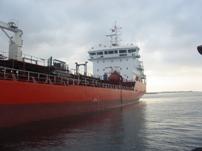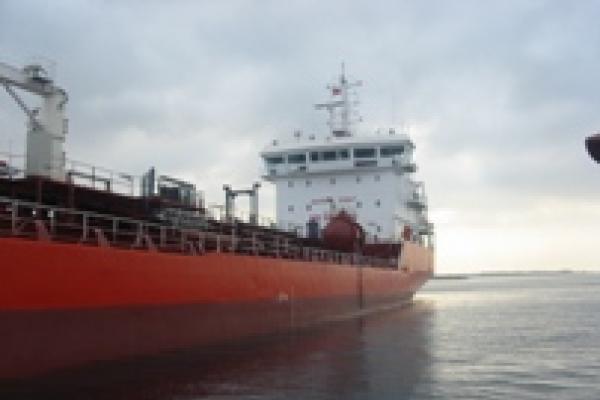
Steamship Mutual
Published: February 01, 2010

On 2 June 2006, by way of a charter party based on the Shelltime 3 form, the owners of the “Kos” chartered the vessel to the defendants for 36 months. Under the terms of the contract hire was payable in advance. If not paid, owners had the right to withdraw the vessel “without prejudice to any other claims owners may otherwise have on charterers under this charter” .
The vessel was at Angora Dos Reis, Brazil back loading two parcels owned by the charterers when, at 14.41 GMT 2 June 2008, owners tendered notice of withdrawal for non-payment of hire. The charterparty had no anti-technicality clause. At this point in time one of the parcels had already been loaded.
Charterers immediately requested owners to reconsider, asserting that it was owners that had in fact breached the charter. Dialogue continued between the two parties with both maintaining their respective positions. During these exchanges owners informed charterers that while they were deciding whether to enter into a voyage charter or discharge the cargo, owners would store the cargo onboard but reserved the right to claim these costs.
On 3 June charterers confirmed that they would take the necessary steps to arrange for the discharge of the loaded cargo which was completed at 06.00 GMT on 5 June 2008. They also alleged owners had waived the right to withdraw the vessel and before the completion of the discharge demanded security in the sum of US$ 18 million. In order to avoid the arrest of the vessel or other assets in their control owners agreed to advance the security without prejudice to their position that the demand was unjustified. They also reserved the right to claim for the costs of providing the security.
The dispute as to hire and bunkers consumed up to the time when the vessel was withdrawn was settled by agreement. The issues before the court concerned (i) the use of the vessel after the vessel had been withdrawn; that is the 2.64 day period between the notice of withdrawal and completion of discharge and (ii) the costs incurred in providing and maintaining the security.
In relation to the first issue owners argued that they were entitled to US$ 410,274 for charterers’ use or detention of the vessel during the 2.64 days at Angora Dos Reis in addition to US$ 40,145 for bunkers consumed. Owners unsuccessfully argued they were entitled to the money on a number of bases including, by way of an indemnity under the charterparty, damages for breach of charterers’ obligation to pay hire and/or by a contractual commitment borne out of the exchanges following the vessels withdrawal.
Clause 13 of the charter provided that the Master was to comply with the orders and directions of the charterers who would in turn indemnify owners for all consequences or liabilities that may arise as a result of his compliance. On the basis of this clause, owners argued that the delay was a consequence of the instructions to back load issued by the charterers and the Master’s subsequent compliance.
The court found that the term “all consequences” was not intended to be interpreted in a literal sense, that there was insufficient nexus between the compliance with the charterers’ order to back load and the loss and expenses claimed by owners. Smith J referred to the “Greek Fighter” in which the words “all consequence an liabilities“ in a Shelltime 4 charter were considered and in which Colman J said “it is in a commercial setting improbable that a charterer would be prepared to assume the risk of eventualities remote from his own orders”. The owners’ claims were too remote from the order to back load. Instead the claim arose as a result of the owners’ decision to withdraw the vessel - a decision over which the charterers had no control or influence.
With respect to the argument that charterers were in breach for failing to pay hire, the court tended to the general view that the failure to pay hire is a breach of an intermediate term, is not therefore repudiatory and does not of itself entitle the owner to claim damages for loss of the resulting termination of the charter. Thus, as soon as it is accepted that the breach was not repudiatory, the chain of causation flowing from the failure to pay hire is broken by the decision to withdraw the vessel.
As to the exchange of correspondence following withdrawal creating a contractual commitment, the court accepted the communications constituted a request from the charterers for the vessel to stay at Angora Dos Reis. The significance of a request in these circumstances is “Where, after [valid] withdrawal, the owners perform further services at the request of charterers, they may become entitled to remuneration for those services under a new contract. Given the develpments in the law since the “Tropwind (No 2)“, it is suggested that Robert Goff’s view would now prevail if the matter came before the courts again.” (Time Charters, 2008, 6th Ed). In the “Tropwind (No 2) [1981] 1 Lloyd’s Rep. 45 Robert Goff J had decided that owners were entitled to remuneration at a market rate when after the valid withdrawal of the vessel owners had, at charterers’ request, continued loading. Although not an issue on appeal, Lord Denning MR had expressed disagreement with this view. However, in the case of the “Kos” the court found that owners had not acted on the basis of charterers’ request but instead, and because they had no practical alternative, had been forced to stay at the port.
Despite failing on these arguments, as well as on a claimed implied term of the charter, owners’ claim did succeed in their capacity as bailees of the cargo.
A bailee is obliged to ensure that bailed goods are available to a bailor and not to restrict him from recovering them. Whilst the goods are in the custody of a bailee he is obliged to take proper steps to preserve the goods and will be liable for any depreciation the goods suffer if the bailee fails to take adequate steps. Cost incurred in this respect are recoverable from the bailor - China Pacific SA v Food Corporation of India (The Winson) [1982] AC 939.
As bailees of the cargo, the owners of the “Kos” would have been liable to the bailor, ie the charterers, for any diminution in the value of the cargo arising for a failure to take proper steps to preserve the cargo. Accordingly, in the event the owners of the “Kos” fulfilled their duty to preserve the goods they were entitled to charge the bailor for expenses reasonably incurred in doing so and in making the cargo available to the bailor.
It followed therefore that the cost of bunkers consumed at Angora Dos Reis following withdrawal were incurred because the vessel remained at the port so that the loaded cargo would be available to the charterers. As a result, and due to owners’ cooperation in the discharge of the cargo, such costs were recoverable as expenses.
Further, the owners were entitled to remuneration for the use of the vessel because it was used as a facility for holding the cargo so that it was available to the charterers.
The second issue to be addressed by the court was owners’ claim for the costs incurred in providing security to charterers in the form of the US$ 18 million bank guarantee. The cost of providing and maintaining the guarantee was US$ 184,125.
Owners argued they were entitled to recover this amount, either as damages under an implied term of the charterparty or as costs. The court rejected owners’ arguments that the charterparty contained an implied term that charterers would not make any invalid claim or demand security other than in support for a valid claim. Any such term would have operated to afford owners more protection than those given by the tort of wrongful arrest.
The court did decide, however, that subject to the reasonableness and proportionality of the costs incurred in providing and maintaining the guarantee these were recoverable as costs.
Ene Kos v Petroleo Brasileiro SA [2010] 1 Lloyd's Rep. 87
The Court of Appeal decision is reported in Withdrawal - Remuneration for Continuing Service


